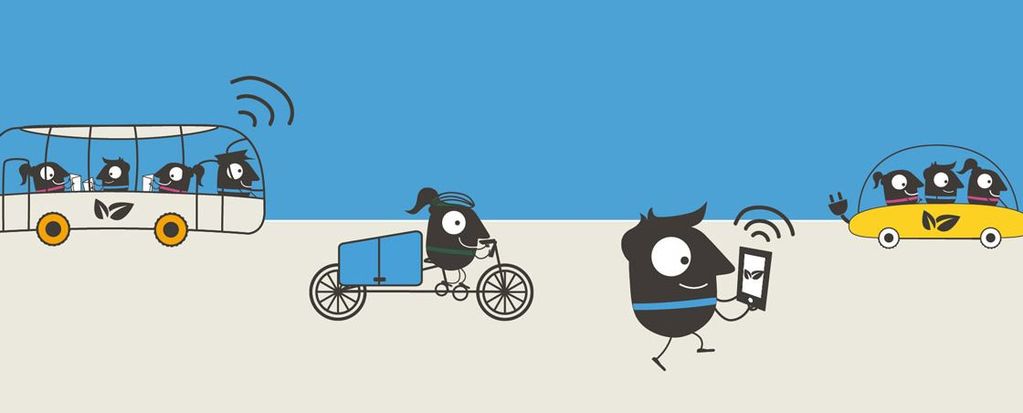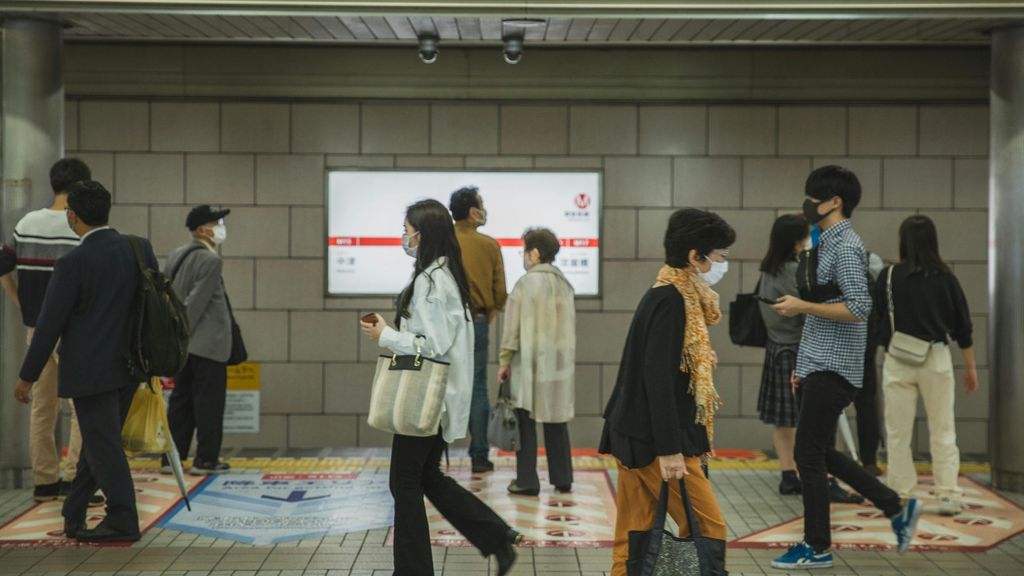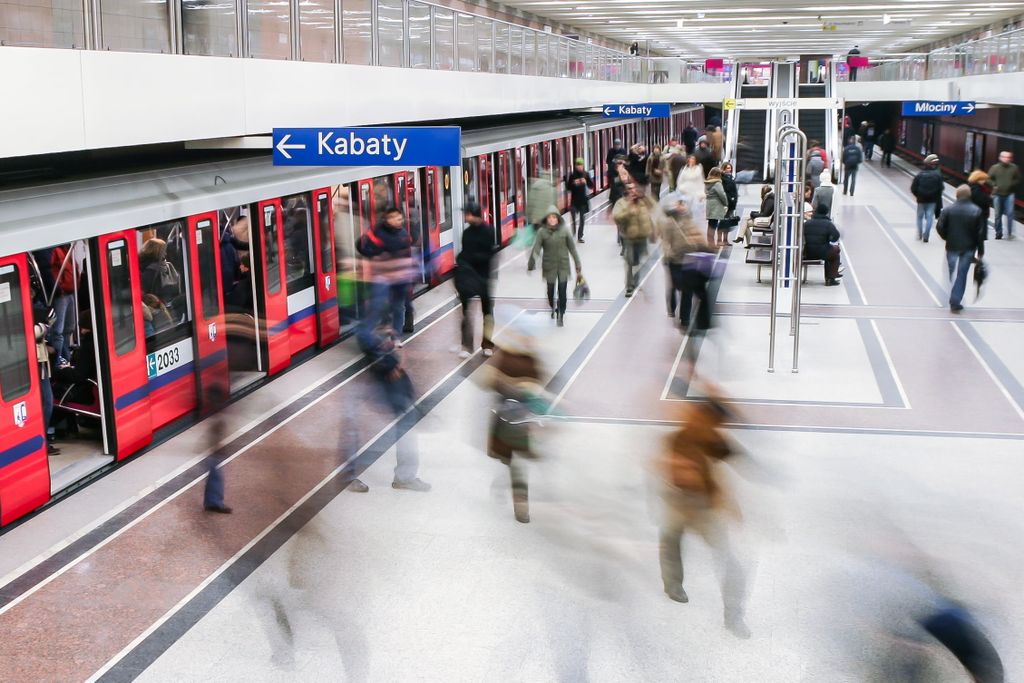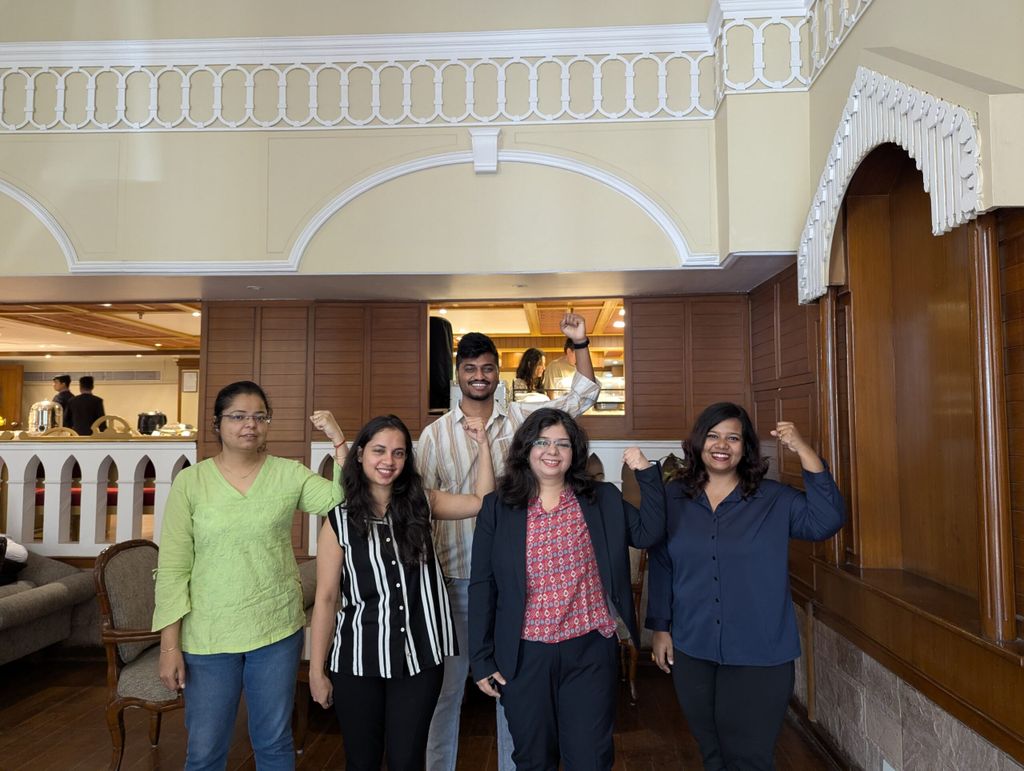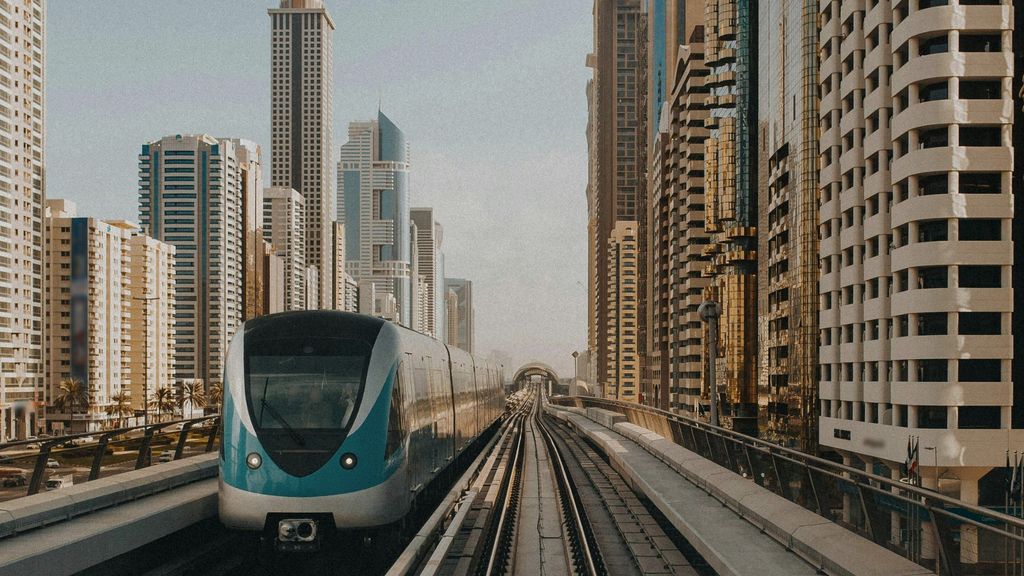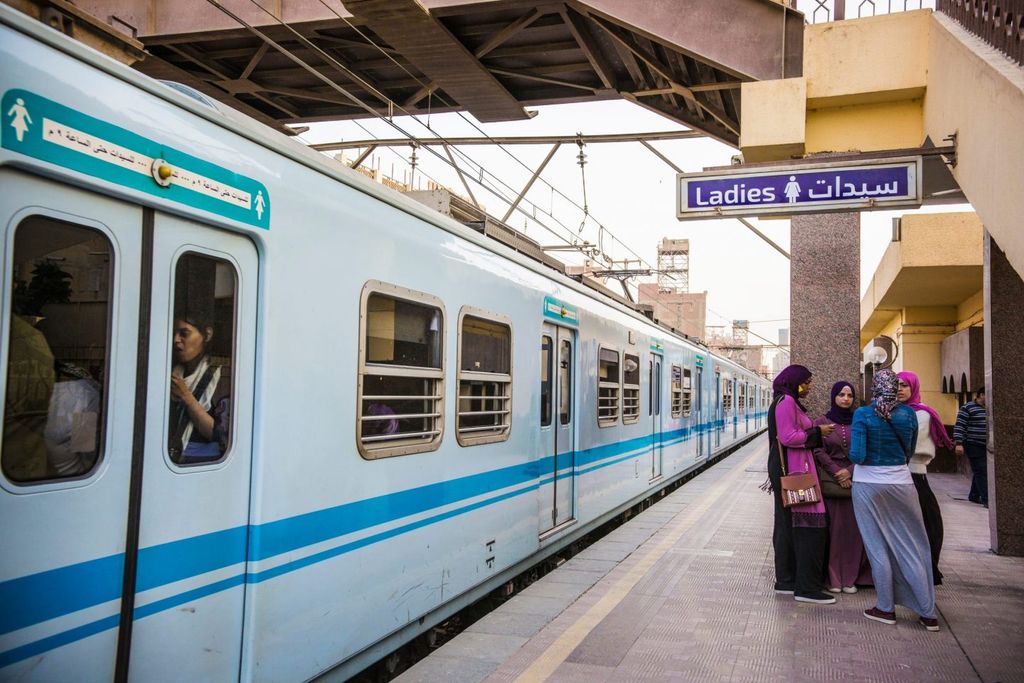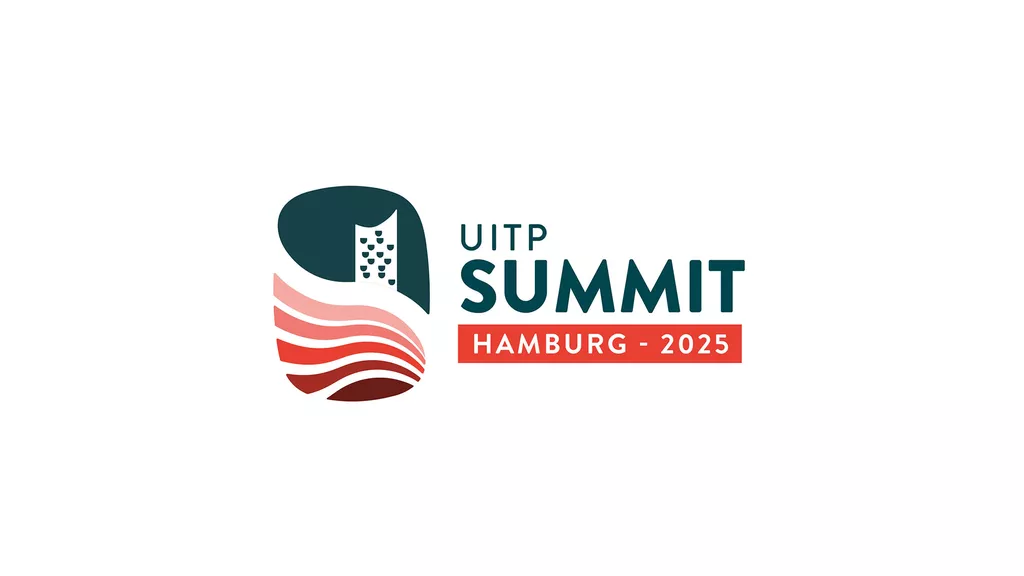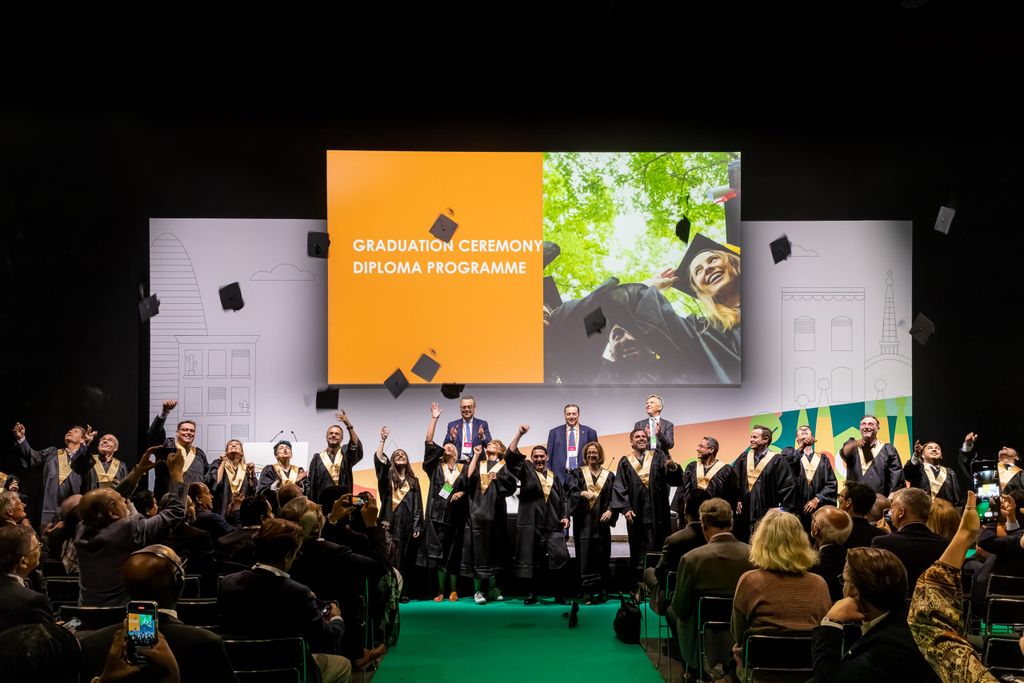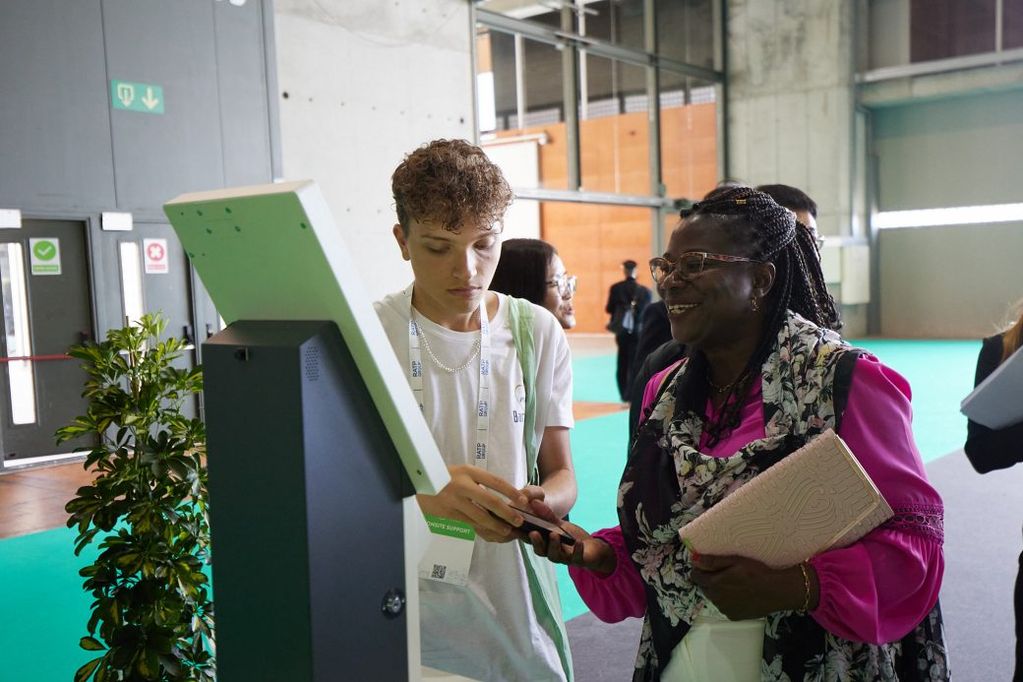
Decarbonisation, accessibility and informal transport - Day 2 at the UITP Summit
Signatories cut the ribbon, congress visitors pick up their live translation devices, and speakers print their final notes before they take the stage; hustle and bustle mark day 2 of the UITP Global Public Transport Summit.
Raquel Sánchez Jiménez, Spanish minister of transport, mobility and urban agenda; Toni Segarra, President of FGC; UITP President Khalid Alhogail; and many more cut the ribbon officially opening the exhibition in Barcelona.
From the newest bus models and metros to cutting edge ticketing machines and an actual escalator (no joke); on the exhibition floor, the most innovative companies show their business.
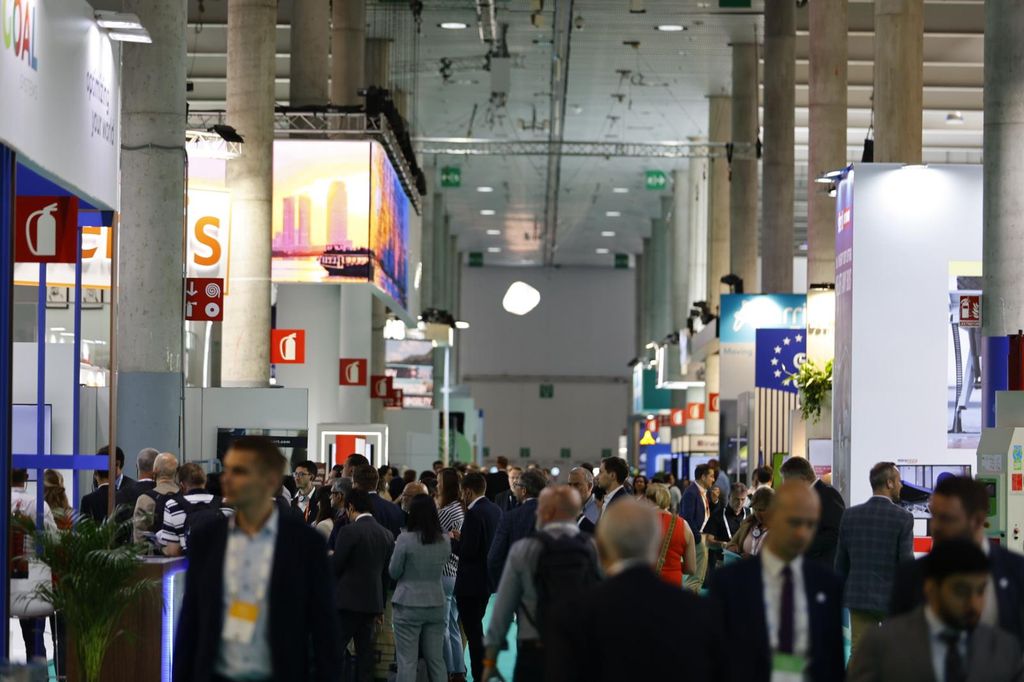
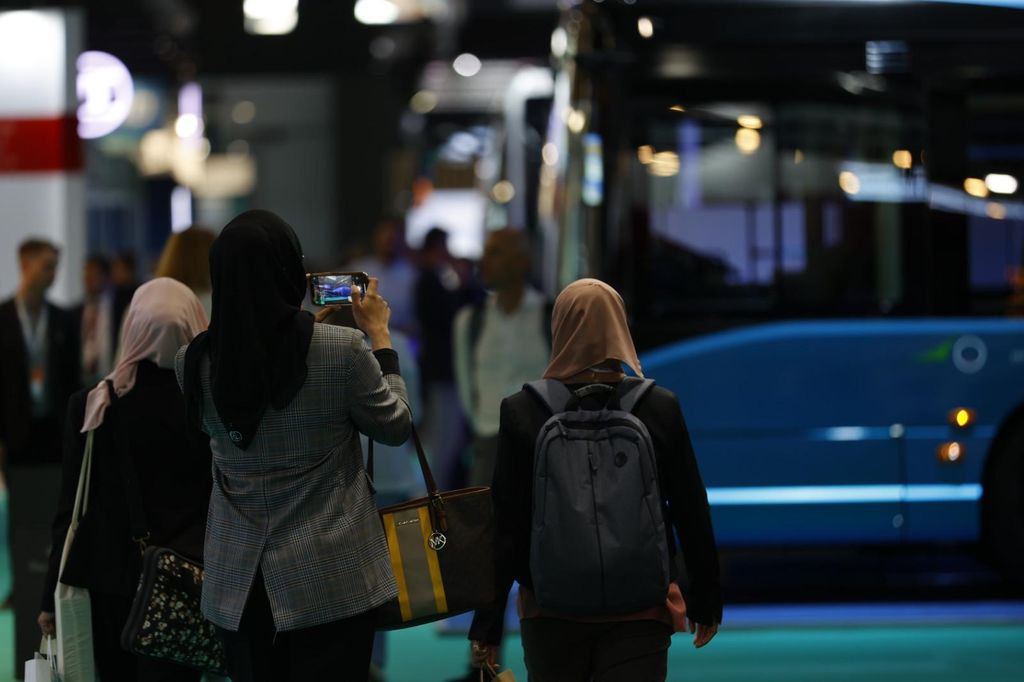
Informal transport: asset or liability?
Sunrise, moonlight, starlight… In the congress hall, delegates scramble from room to room.
In the Sunrise room, the morning centres around informal transport and paratransit. How do we incorporate these independent, private operators into formal public transport networks? And should that even happen?
“Governments can’t force their will on these systems”, remarks an audience member during the discussion. “But they should pull out the gems and foster them.”
“We cannot ignore them, but we can’t continue to do business with them in the way we do today”, says Abimbola Akinajo Managing Director, Lagos Metropolitan Area Transport Authority.
She is one of the speakers in the session on looking at Informal Transport: An Unpolished Diamond in the Emerging World.
“They are some of the best operators we have thanks to their wealth of experience. You have to bring them to the table.”
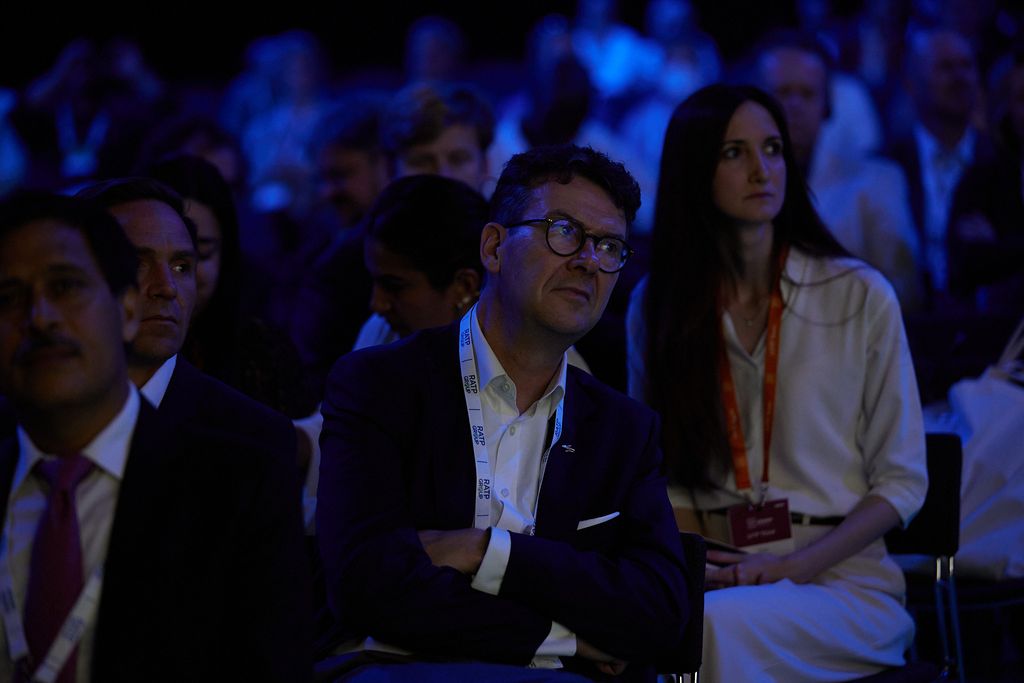
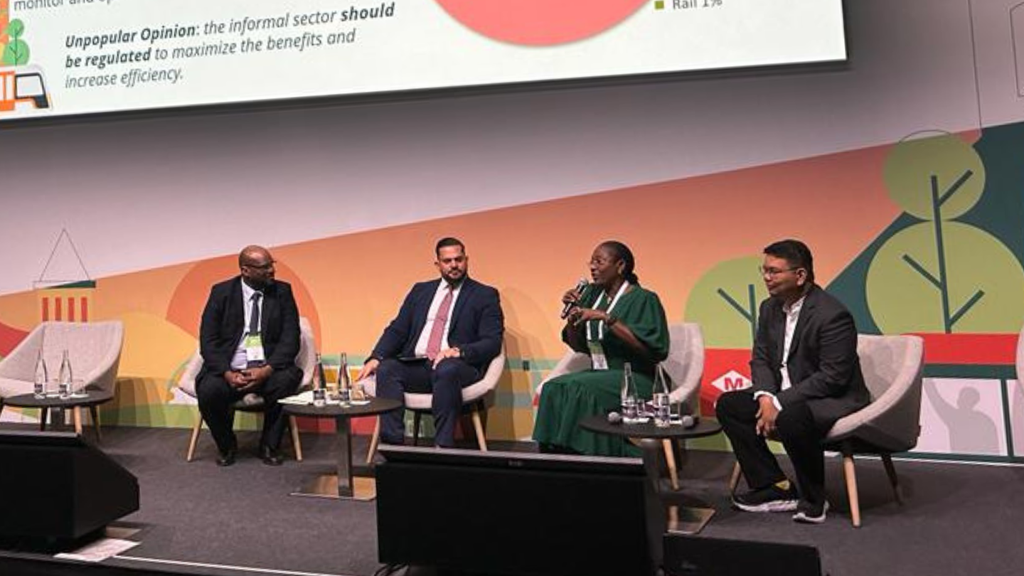
“Design for the individuals that will be most challenged”
As the day progresses all pillars of the UITP Summit are discussed. From sessions on PPPs (Public Private Partnerships) to automation in trams and trains; speakers shared knowledge from across the globe and from across the sector.
Karima Delli, Chairwoman of the Transport and Tourism Committee of the European Parliament for example, reminded us that government should be supporting sustainable mobility at any cost. But even more so with the energy crisis, labour crisis and supporting the decarbonisation of the sector.
The plenary on ‘ensuring inclusivity as we move to net zero cities’ featured Andy Lord, Nuria Fernandez, Marie-Ange Debon and Roberto Labarthe. Moderator Laura Shoaf pushed them to share how we can improve access to public transport, as this raises social inclusion and the potential for social mobility.
“Young men from more deprived areas of the city are more likely to be injured on the roads”, started Andy Lord of Transport for London. “We want to engage communities to achieve our target of having nobody killed on London roads.”
Marie-Ange Debon of Keolis adds that decarbonising transport will especially support low-income people. “At the end of the day, we know they are more exposed than others to the energy crisis and climate change.”
According to Marie-Ange, only 20 to 25 percent of daily trips are between home and work. “A key part of accessibility is to give people access to all aspects of life. From work to leisure.”
In the end though, says Nuria Fernandez of the Federal Transit Administration, “we need to design for the individuals that will be most challenged. That way anybody that is able bodied can also use our services. We must think of equity in a very holistic way.”
…and a deeper partnership with UNEP
At the UITP stand, UITP and the United Nations Environment Programme (UNEP) renewed their partnership. It guarantees continued cooperation to promote sustainable transport as the answer to environmental challenges.
Public transport is the most climate-friendly way of traveling besides walking and cycling. For citizens’ daily mobility, a modal shift to collective public transport and active mobility is needed. Achieving this, brings benefits to the planet and every person living on it.
UITP and UNEP have worked together to promote public transport as a solution to environmental challenges since 2019: from showing how the sector helps ‘Beat Air Pollution’ to calling for urgent action to revive our damaged ecosystems in 2021.
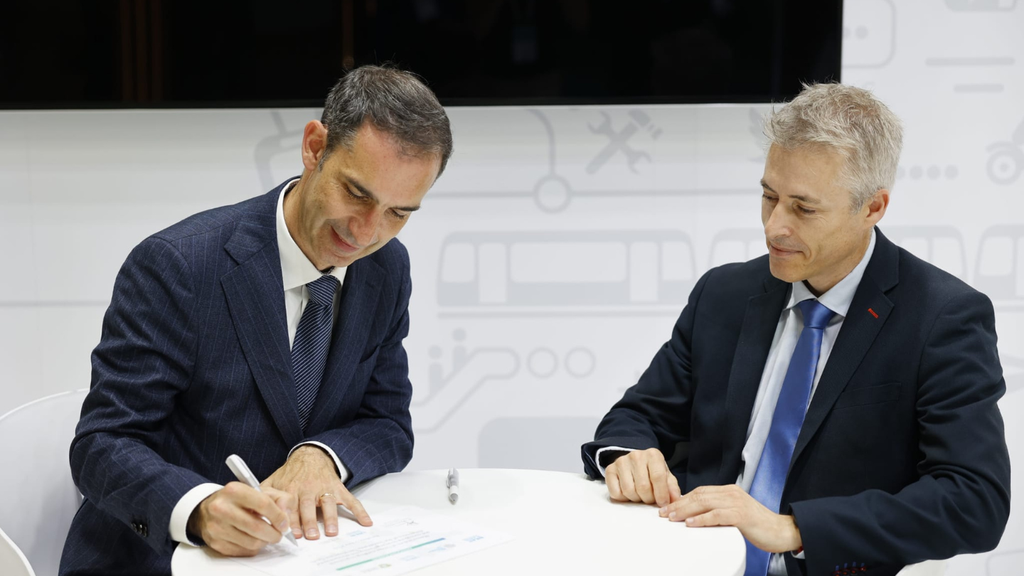
Fight plastic pollution
This year the World Environment Day theme is ‘fight plastic pollution’. Just last week, we looked at the efforts of the public transport sector to decrease their plastic consumption. From innovative solutions to sustainable practices, they are driving positive change and paving the way towards a plastic-free future.
Listen to Inger Andersen, who joined the Summit virtually to emphasise the power of public transport to deliver a sustainable future.
Showcasing research and innovation
Also at the UITP Summit we know: we need research and innovation to keep our sector moving! In the Exhibition halls, some of the most groundbreaking R&I projects are showcasing their latest solutions to advance public transport.
While the eBRT2030 project showed how its 45 partners are creating better quality of life by developing solutions for electric and automated BRT, the UPPER project explained the concrete measures taken by 10 cities to advance public transport. Also the IP4MaaS project took to the stage, warming up the audience for its Final Event tomorrow by discussing how IT solutions have sought to improve mobility in Barcelona.
On Tuesday and Wednesday, many more projects will keep you up to date with the latest in public transport research. Check out the full programme here.
Make sure to get social! Follow along and share your experience of the Summit on social media. Follow @UITPSummit and use the hashtag #UITP2023.
And there is still time to visit the exhibition!
Membership benefits

